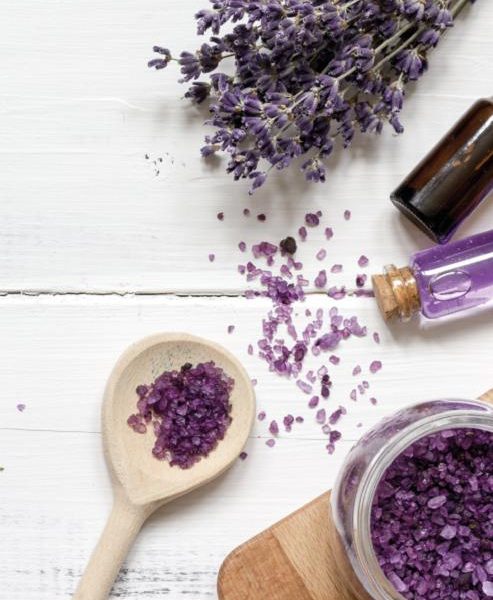With the right fragrance, you can feel less stressed, sleep better and stop a cold in its tracks. Aromatherapy can relieve a variety of physical and mental issues, and you don’t need to spend a fortune at a spa to reap its benefits. Here’s how to try aromatherapy for yourself.
What is aromatherapy?
“Aromatherapy uses essential plant oils to heal,” explains Michelle Roques O’Neil, founder of Therapie Roques O’Neil (roquesoneil.com). “The oils are garnered from many plant sources – roots, seeds, bark, leaves, fruit and flowers – and then extracted. Aromatherapy works instantaneously through smell and via the 4,000 smell receptors in the nose that are directly linked to the brain.” But it’s important to note that a little goes a long way! “In aromatherapy, essential oils are used in a dilute form, as most of them are too powerful to use in their concentrated state,” says Anne Murray, aromatherapy expert for Aromatherapy Associates (aromatherapyassociates.com). “It can take many kilos of plant material to make a single millilitre of essential oil. For example, 20kg of rose petals are needed to produce just one drop of precious rose essential oil. In a body or facial massage, they are diluted by being blended into one or more vegetable carrier oils.”
How does it work?
“There are several ways to use the essential oils – during massage, inhalation, on a compress and in a bath,” says facialist Fiona Harlowe (fionaharlowe.com). “It’s important to use essential oils safely – as general rules of thumb for home use, do not use essential oils when pregnant and never use aromatherapy oils around your pets.” That said, there are many ways to incorporate aromatherapy rituals into your daily routine. “A morning shower with essentials oils is a fabulous way to wake up your mind and body,” says Anne. “You can also inhale essential oils from a tissue on your morning commute to prevent picking up bugs, or to visualise a strong and healthy body. At stressful times, take a few moments to breathe in a drop of frankincense oil to calm down and feel centred, consciously letting your shoulders drop and your belly soften with each breath. Another way to try aromatherapy at home is to light a fragrant candle for some me-time – take in the moment and feelings of gratitude for a restful break after a busy day. You could also add some oils to a soothing bath before bed to relax your body and mind, ready for a good night’s sleep.” Here are five oils to try to treat everyday ailments:
Tea tree
To boost your immune system
“Tea tree is a superbly effective antibacterial and antiviral oil, but the aroma is not everyone’s choice,” says Anne. “With careful blending you can hide it, using eucalyptus or peppermint, both of which can benefit the immune system. Some of these oils are quite potent, so perhaps better inhaled or vaporised than used directly on the skin.”
Lavender
To help you relax
There are several oils that have calming properties. “Lavender is very multifaceted – it’s balancing and lifts depression, while increasing inner energy flow, both physically and emotionally,” says Michelle. “Rose oil also offers a soft energy for an emotional heart, relieving anxiety and self doubt.”
Benzoin
To get a good night’s sleep
“Inhaling a single drop of sweet benzoin (derived from the bark of the styrax benzoin tree) starts to induce sleep,” says Fiona. “Benzoin is healing, leading to slumber. There is a depth to these sorts of oils which carries us to other places, including to sleep.” Benzoin is also very calming and used during meditation to encourage dreaming.
Orange
To feel energised
Uplifting and zingy aromas are best for perking you up due to their revitalising properties. “Inhale a drop of sweet orange (derived from the citrus fruit sinensis) for a refreshing energy boost,” says Fiona. And that’s not the only benefit of citrus scents – a study conducted at Mei University in Japan found that when patients sniffed orange oil they were able to reduce the amount of antidepressant medications they were on.
Rosemary
To help you focus
“To stimulate your brain, dilute five to ten drops of eucalyptus, pine or rosemary essential oils in a tablespoon of carrier oil and add to a bath,” says Marie de Mattia from Amphora Aromatic (amphora-retail.com). “For more clarity of thought, put five to ten drops of peppermint or rosemary on to a handkerchief and inhale when needed.” You could also add these oils to a diffuser or burner that’s placed by your desk.
Did you know?
Though practised effectively for centuries, the word ‘aromatherapy’ was first coined by Rene Gattefosse, a chemist who was badly burnt while working. He plunged his hand into a vat of lavender oil and discovered the healing power of essential oils when his hand survived without any scarring.






















